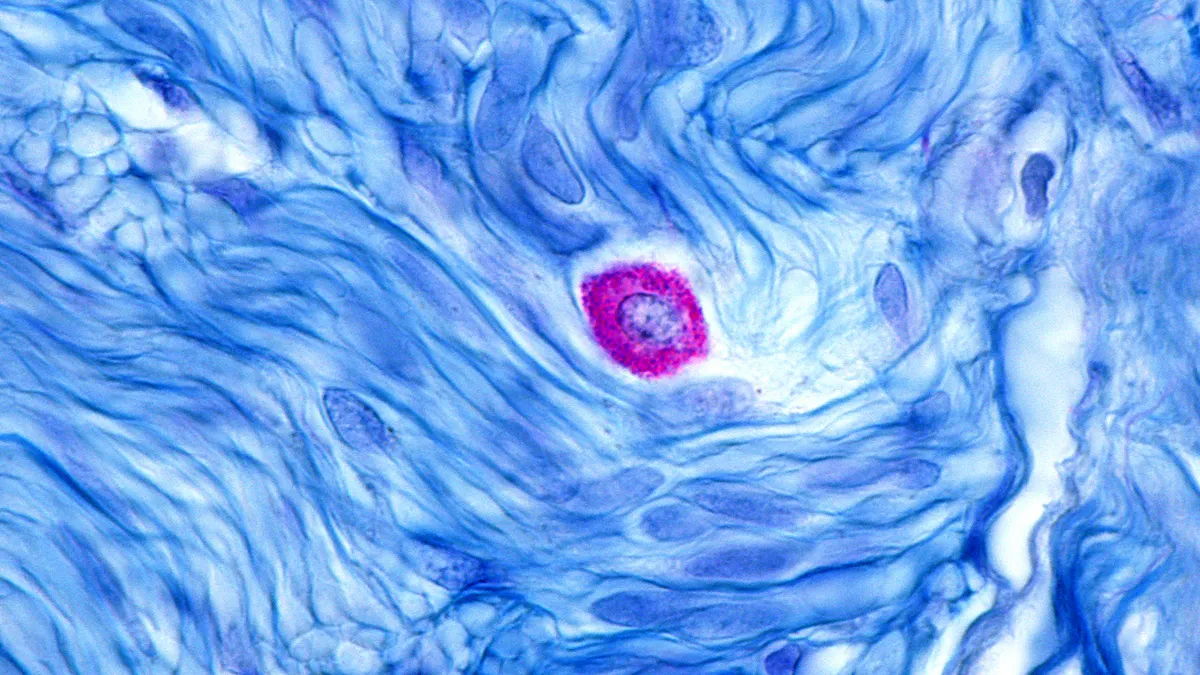California biotechnology startup Evommune has raised $115 million to advance a pair of medicines it’s developing for chronic immune conditions.
The Series C funding announced Thursday will support a trio of Phase 2 trials that should all produce results by the end of 2026. Evommune’s most advanced drug, a small molecule dubbed EVO756, is already being tested in one mid-stage study in a form of chronic skin hives, or urticaria, with another expected to start next year. Another, EVO301, could reach Phase 2 testing in a common type of eczema in 2025 as well.
Urticaria describes a group of inflammatory skin conditions that can cause hives to form on the body and lead to severe itching, burning or swelling. They can crop up either spontaneously or be induced by outside triggers, such as cold or warm temperatures, and last for weeks or even years at a time. Millions of people in the U.S. are affected, according to some estimates.
Patients typically take antihistamines or the biologic Xolair. But many don’t respond and, even when they do, the effects can take weeks to materialize. As a result, several drugmakers, among them Celldex Therapeutics, Novartis and partners Sanofi and Regeneron, are investing in therapies they claim can improve upon standard care.
Many of the experimental drugs in testing, among them Celldex’s barzovolimab and Sanofi and Regeneron’s Dupixent, are administered via infusion or subcutaneous injection. Evommune’s is given orally and blocks a protein, mas-related G-protein coupled receptor X2, that’s expressed on the mast cells thought to drive the condition.
It’s not the only drug of its kind in development, though. Another startup, Escient Pharmaceuticals, has a similar medicine in clinical testing. Escient was acquired by Incyte in April.
Still, Luis Pena, Evommune’s CEO, said EVO756 could be a “first-in-class” treatment for conditions triggered by mast cells. The company disclosed proof-of-concept data in July and intends to provide fuller details at a conference later this year. The Phase 2 study it’s running in inducible urticaria should produce results in the first quarter of 2025, with data from a study in spontaneous urticaria following in 2026.
Evommune’s second program, EVO301, is a fusion protein targeting an inflammatory cytokine called IL-18. The company licensed the drug earlier this year from South Korea-based biotech AprilBio and is evaluating it in atopic dermatitis. In Phase 1 testing, it showed a “compelling clinical profile with potential for convenient dosing intervals,” Pena said.

Based in Palo Alto, Evommune raised more than $130 million through two previous funding rounds in 2021 and 2023 from Pivotal bioVenture Partners, EQT Life Sciences and many other investors.
The company’s latest round was co-led by RA Capital Management and Sectoral Asset Management, both of which invest in public and private companies. These types of “crossover” fundings typically precede initial public offerings and slumped during the sector’s recent downturn.
According to Pena, the company’s executives have experience running private as well as public companies. With the new funding and multiple data readouts ahead, “we will be well funded and continue to keep our options open, including with respect to a potential IPO,” he said.
If Evommune does make a bid for Wall Street, it would extend on a recent trend. Fourteen of the 23 life sciences companies that priced an IPO this year have had a lead program in Phase 2 studies or later, according to BioPharma Dive data.















